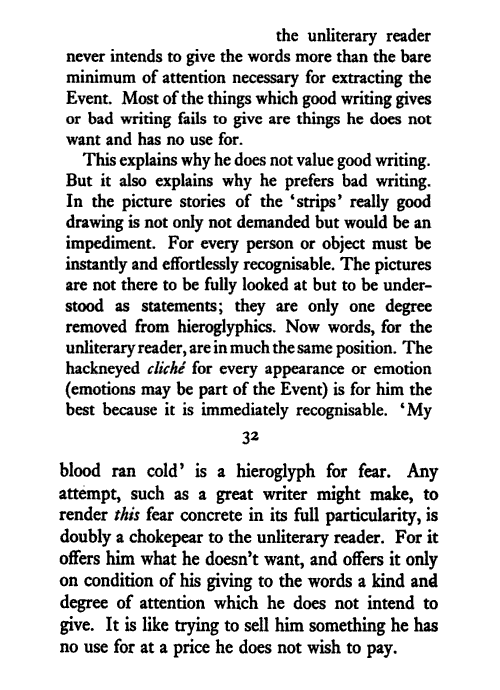I doubt whether it is a good idea for most people to "read critically" a story that they have not read before. For one thing, how can you know, ahead of time, whether the story (or poem, etc.) rewards that especially alert kind of reading?
I think teachers often do students a disservice in asking them to read "critically" books that they have never read, and that they will not read more than once before the designated class meeting. At the least, I think that, if a teacher is going to ask students to read something "critically," the teacher should specify something to look for, preferably something that doesn't make too great demands on readers. So, for example, it would be okay to tell first-time readers of Shakespeare's Romeo and Juliet to be on the lookout for references to light, the sun, lightning, etc. But teachers who expect students to bring to class reading experiences that are comparable to their own are probably setting students up for unsatisfactory reading. The student may read in a stop-and-start manner that interferes with reading pleasure.
And I would say that any literary work ought to provide pleasure. (Of course there are different forms of literary enjoyment, as there is a difference between a fastfood meal and a meal befitting one's 30th wedding anniversary.) I would say, though, that the provision of some form of literary enjoyment is the only thing an author as author is required to provide. (As a decent human being, he or she should also provide an imaginative experience that is fitting for a morally decent reader, but that isn't a specifically literary obligation.)
Critical or, as I have called it above, discerning reading, is largely concerned with reading enjoyment. There are some stories, such as "The Speckled Band," that provide an enjoyment, for the willing reader, dependent on the experience of atmosphere, suspense, comedy, or the like. Unduly vigilant reading will likely spoil such a story! But then there are also stories that yield satisfactions that readers will experience only when they read discerningly or perhaps discuss the story after reading it with good readers. Many of Nathaniel Hawthorne's stories are of this type. If I were to read "Rappaccini's Daughter" with the same kind of attention that I read "The Speckled Band," I would miss much that the former has to offer, and I might be inclined to fault it for being too slow.
Experienced, discerning readers can, even on a first reading, pick up cues as to how a given story should be read, including how slowly or how rapidly. But a rereading is especially helpful.
Does all this sound about right?
I'm afraid that the entrenched emphasis on Theory in college English departments often promotes problems with reading. Especially given that so many people simply read less imaginative prose and poetry than they could if they spent less time texting, watching movies, etc., it is really a shame to fuddle a 19-year-old with Lacan and Derrida when the student should mostly be reading (and rereading, and reading so that he or she can reread) widely and deeply in imaginative prose and poetry. Conversely, the student who has ready widely and deeply will be much better able to benefit from what is valid in a Theoretical discussion of a work -- and to detect baloney from a teacher or fellow student who speaks amiss about a given work.









